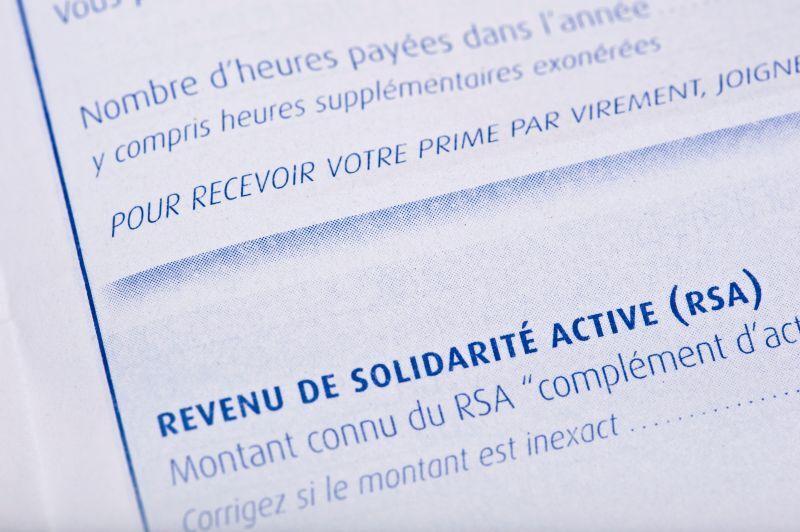This page has been automatically translated. Please refer to the page in French if needed.
Social benefits
RSA: 15 Hours of Operation in 29 New Departments as of March 2024
Publié le 04 mars 2024 - Directorate for Legal and Administrative Information (Prime Minister)
The number of territories in which the receipt of the active solidarity income (SSA) is associated with the completion of at least 15 hours of activity per week shall start from 1er March 2024, from 18 to 47, said the Minister of Labor, Health and Solidarity; she had previously signaled that this mechanism should be generalized in 2025.

The Ministry of Labor published the 1er march 2024 the list of 29 new departments participating in the experiment of the active solidarity income reform, which aims to link the payment of the allowance to the achievement of 15 to 20 hours of activity per week.
These departments are: Haute-Savoie; Rhône; Allier; Cantal; Territory of Belfort; Haute-Saône; Saône-et-Loire; Finistère; Loir-et-Cher; Cher; Eure-et-Loir; Meuse; European collectivity of Alsace (Bas-Rhin and Haut-Rhin); Ardennes; Marne; Pas-de-Calais; Oise; Essonne; Hauts-de-Seine; Val-de-Marne; Manche; Seine-Maritime; Charente-Maritime; Vienna; Alpes-Maritimes; Vaucluse; Sarthe; Guadeloupe.
The experiment is not necessarily carried out in the entire territory of the departments; it may concern only one or more living areas in these areas.
In the regions where the "renewed support" of RSA beneficiaries is being tested, integration and employment actors must offer them:
- a diagnosis of their social and occupational needs with a view to promoting their return to employment;
- social and professional support so that they can set up a professional project and determine the means to achieve it. In this context, it is expected that RSA beneficiaries will carry out 15 to 20 hours of activity per week and that all local integration stakeholders (associations, integration sites, etc.) will be involved.
These 15 to 20 hours of activity cannot be voluntary work outside the framework of the Labor Code. These may include:
- Immersion in company to refine his professional project;
- obtaining a driving license;
- taking steps to access rights;
- participation in activities in the voluntary sector.
Please note
the first 18 territories that were selected in December 2022 to experiment in 2023 with the renovated support of the RSA beneficiaries are: Aisne, Aveyron, Bouches-du-Rhône, Côte-d’Or, Creuse, Eure, Ille-et-Vilaine, Loire-Atlantique, Loiret, Mayenne, the metropolis of Lyon, the North, Pyrénées-Atlantiques, Reunion, Somme, Vosges, Yonne and Yvelines.
The Ministry of Labor states that these territories were chosen to reflect the French territory in all its diversity: size, number of inhabitants, average age, socio-economic situation, sectors of activity...
How are the activities to be carried out determined?
The pilot areas for "renewed support" must, together with local integration stakeholders, define the list of activities proposed during this experiment. The aim is for the system to be adapted to each of the local realities. Each RSA beneficiary then defines, with the social worker or the accompanying France Travail adviser, an individualized project within the framework of a contract of employment.
The following are exempt from 15 to 20 hours of activity:
- people with disabilities, disabilities or health problems;
- lone parents of children under 12 who do not have childcare options.
In addition, some people may benefit from fewer hours if they face difficulties in their personal and family life.
What are the penalties?
It is not currently foreseen that a person receiving the SSA could lose his allowance for non-compliance with the 15 to 20 hours of activity. The Ministry of Labor states that it is neither the purpose nor the objective of this experiment to condition access to the RSA; it states that “the experiment involves the renewed and intensive support of 100% of the most precarious people in a territory in order to accompany them towards employment. It shall be effected at constant law.’
The Law of 18 December 2023 on full employment, on the other hand, provides that from 1er january 2025 (when the scheme should be generalized) “the president of the departmental council may decide to suspend, in whole or in part and for a period that he fixes, the payment of active solidarity income when, without legitimate reason, the beneficiary: refuses to draw up or update the contract of employment; does not respect all or part of the obligations set out in this contract”.
Reminder
in the law of 18 december 2023 on full employment, it is stated that: ‘no later than 31 december 2024, the national committee for employment shall take into account, in the exercise of its tasks and powers, the assessments of experiments relating to [...] arrangements for accompanying beneficiaries of active solidarity income’.
Additional topics
Service-Public.fr
Service-Public.fr
Service-Public.fr
Service-Public.fr
Service-Public.fr
Agenda
Apprentissage
Jusqu'au 17 mai 2024
Publié le 03 mai 2024
Impôts
À partir du 11 avr. 2024
Publié le 11 avril 2024
Prévention Covid-19
À partir du 15 avr. 2024
Publié le 18 mars 2024
Calendrier scolaire
Du 6 avr. au 12 mai 2024
Publié le 15 mars 2024

